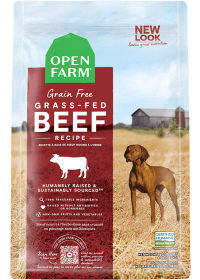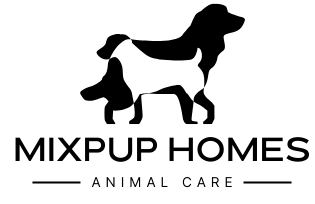Table of Contents
ToggleEmbarking on the journey of pet ownership is a delightful adventure, and one of the most important aspects is ensuring your furry friend receives the best possible nutrition. The question on every pet parent’s mind is, “What’s the best food to feed your dog?” In this comprehensive guide, we’ll navigate the intricacies of canine nutrition, exploring the factors that contribute to a dog’s well-being and happiness. check out
Understanding Canine Dietary Needs
Dogs Are Unique Individuals
What’s the best food to feed your dog?
Just like humans, each dog is a unique individual with distinct preferences, dietary requirements, and health considerations. Understanding your dog’s breed, age, size, and any specific health concerns is paramount when choosing the ideal diet.
The Importance of Balanced Nutrition
Balanced nutrition is the cornerstone of a healthy dog. Dogs require a mix of proteins, carbohydrates, fats, vitamins, and minerals to support their overall health. A well-rounded diet ensures they receive the necessary nutrients for energy, immune function, coat health, and more. check out
Decoding Dog Food Labels
1. Real Meat Matters
When perusing dog food labels, prioritize products where real meat is listed as the primary ingredient. Dogs are, by nature, carnivores, and a high-quality source of animal protein is essential for their well-being.
2. Mind the Fillers
Avoid dog foods that are laden with fillers, artificial preservatives, and additives. Opt for options that boast natural ingredients and steer clear of unnecessary additives that may compromise your dog’s health.
3. Understanding Life Stage Nutrition
Different life stages demand different nutritional profiles. Puppies, adult dogs, seniors, and pregnant or nursing females all have unique dietary needs. Selecting a dog food formula that aligns with your pet’s life stage is pivotal for their health and vitality.
Unveiling Popular Types of Dog Food
1. Dry Dog Food (Kibble)
Kibble is a convenient and widely available option. It’s not only cost-effective but also promotes dental health by assisting in plaque and tartar reduction. Opt for high-quality kibble with real meat as the main ingredient. Check out
2. Wet Dog Food
Wet dog food, with its higher moisture content, is often more palatable, making it an excellent choice for picky eaters. Verify that the ingredients align with nutritional standards.
3. Raw and Homemade Diets
Some pet owners opt for raw or homemade diets, providing a more natural approach to nutrition. While this can be beneficial, it requires careful planning to ensure all nutritional needs are met. Consult your veterinarian before making the switch.
Addressing the Age-Old Debate: Grain or No Grain?
1. The Grain-Free Controversy
The debate over grain-free diets continues to intrigue pet parents. While some dogs thrive on grain-free food, others may benefit from grains like rice or oats. Consulting your vet helps determine the best option for your dog.
2. Individual Allergies and Sensitivities
Dogs, like humans, can have allergies and sensitivities. Pay attention to your dog’s reactions to certain ingredients, and consult your veterinarian if you suspect allergies or sensitivities.
Transitioning to a New Food
1. Gradual Changes for Digestive Harmony
When transitioning your dog to a new food, do so gradually over several days. Mixing the new food with the old allows your dog’s digestive system to adjust, reducing the likelihood of upset stomachs.
Exploring Homemade Diets: Pros and Cons
1. The Appeal of Homemade Diets
Homemade diets can offer a more personalized and potentially natural approach to nutrition. It allows you to have greater control over the ingredients your dog consumes.
2. Potential Pitfalls
However, homemade diets come with challenges. Ensuring a balanced and complete nutritional profile requires meticulous planning, and any diet changes should be discussed with your veterinarian.
Frequently Asked Questions About Dog Nutrition
1. What’s the Best Dog Food to Feed Your Dog?
The best dog food for your furry friend depends on various factors, such as age, size, health condition, and personal preferences. Consulting with your veterinarian can help tailor the perfect diet for your dog’s needs.
2. What is the Best Thing to Feed Your Dog?
The best thing to feed your dog is a well-balanced and nutritionally complete diet that suits their requirements. High-quality commercial dog food or vet-recommended homemade diets can be excellent choices.
3. What Are the Best Foods to Feed Your Dog?
The best foods for your dog include high-quality protein sources like meat, balanced carbohydrates, healthy fats, and essential vitamins and minerals. Specific dietary needs may vary, so it’s essential to choose a diet that aligns with your dog’s unique requirements.
Conclusion
Navigating the world of dog nutrition can be both exciting and overwhelming. The best food to feed your dog is a personalized choice based on their individual needs and preferences. Whether you opt for commercial dog food or explore homemade diets, the key is to provide a balanced and nutritionally complete diet. Check out
In the ever-evolving landscape of pet nutrition, staying informed and consulting with your veterinarian is essential. The bond between you and your dog is strengthened through the shared moments around mealtime, making the effort to provide the best possible nutrition a rewarding journey for both pet and parent.

This webpage is outstanding. The site owner’s passion is evident in the excellent content. I’m in awe and anticipate reading more amazing pieces like this one.
Simply wish to say your article is as amazing The clearness in your post is just nice and i could assume youre an expert on this subject Well with your permission let me to grab your feed to keep updated with forthcoming post Thanks a million and please carry on the gratifying work.